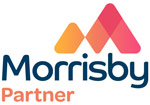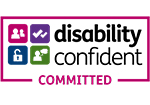Blog

National Coding Week
September 2023
How to embrace the future of AI and coding
National Coding Week starts on the 3rd week in September and in this month’s blog we take a look at digital skills, why they are important and how to acquire them.
As technology continues to become embedded into our daily lives, the importance of coding and digital literacy has never been more evident. Businesses are increasingly digitising their operations and services and there is now a greater need than ever for the workforce to be able to navigate and use digital tools. From data analysis to cloud computing, from social media marketing to artificial intelligence, every sector now demands a certain level of digital fluency.
Digital skills also enable individuals to be adaptable and resilient in the face of change. Those who embrace the digital evolution can quickly transition to new jobs, upskill or contribute more meaningfully to their organisations.
Image by iuriimotov on Freepik
What is the skills gap?
While technology leaps ahead, a significant number of individuals remain unfamiliar with the tools and concepts shaping the digital realm and as a result, the digital skills gap presents a real challenge.
An estimated 20% of the workforce in the UK will be significantly under-skilled for their jobs by 2030, which could amount to around 6.5 million people.
Whilst 27% of UK workers say that they lack the sufficient digital skills required for their role, the skills gap of the future is two-pronged; organisations seek IT staff to fill the need for both interpersonal skills such as strengths in communication and collaboration as well as technical/hard skills.
Careers guidance and digital opportunities
At FutureSmart Careers our advisers are passionate about what they do and are on hand to offer impartial, independent careers advice to young people seeking to improve their digital skills or those who are looking for roles to start their career in digital industries. Our advisers provide tailored advice, promote skills development and provide insights into the evolving job landscape.
Here's how we help:
-
Identification of Digital Opportunities: The digital world offers a wide array of career options that might not have existed a few decades ago. We can help young people identify emerging digital fields such as artificial intelligence, data science, cybersecurity, digital marketing, and software development. We can shed light on the skills and qualifications required for these roles and where to find opportunities. Visit: Digital Careers |Improve your digital skills | National Careers Service
-
Skill Development: The digital world places a high emphasis on specific technical and soft skills. We can guide young people on the skills that are in demand, such as programming languages, data analysis, problem-solving, critical thinking, communication, and adaptability. Our advisers can suggest online courses, workshops, and training programs to acquire skills and stay competitive. Visit: Identifying skills and upskilling | National Careers Service
-
Matching Interests and Aptitudes: Effective careers guidance involves understanding a young person's interests, strengths, and aptitudes. Our advisers take the time to find out what matters to the individual, sometimes with the use of psychometric tools such as the Morrisby Profile This personalised approach can lead to more fulfilling and successful career choices.
-
Navigating Educational Pathways: With the rapid pace of technological change, it can be challenging for young people to understand which educational paths will best prepare them for the digital world. We can provide insights into relevant degrees, qualifications and institutions that offer courses aligned with digital careers as well as offer advice on the benefits of traditional education or online learning.
-
Industry Insights: Careers advice can help in sourcing information on industry developments, job market trends, and the types of roles that are likely to be in demand. Visit: Overview of the UK's IT industry | Prospects.ac.uk
What digital skills are in demand?
The range of digital skills needed will partly depend on the career they want to pursue and their personal goals.
Essential digital skills: using email, use of social media platforms for business, a basic knowledge of how to use and navigate software such as Word and Excel and working safely online with regard to sharing data and web searches. These basic skills will be invaluable when applying for university or apprenticeship or job vacancies where the application process is online. Employers are looking for these skills and there maybe online assessments as part of the recruitment process.
Advanced digital skills: coding, data analysis, web development, SEO (search engine optimisation), app development. These digital skills contribute greatly to the effective running of any business. Customer data is mainly stored digitally now and transactions are increasingly made online therefore having digitally skills in the workplace is extremely useful.
How to develop digital skills?
You could also start your coding journey by visiting 10 Coding Projects for Beginners (codecademy.com) or find out about what careers are related to AI 10 Awesome & High-Paying AI Careers to Pursue in 2023 (springboard.com)
There are lots of other skills-based courses widely available for free from Udacity, Coursera, Code Academy, learnpython and Google Digital Garage among others too. Some short courses can supplement school studies.
National Coding Week also provides lots of information about how to improve your digital skills and coding knowledge. There are top tips on coding, career ideas and other resources. This year's event will also delve more deeply into the world of Artificial Intelligence (AI) and its connection to coding.
Digital Apprenticeships and university courses
Apprenticeships are available to young people leaving school at 16 or 18 and beyond.
An apprenticeship will provide a job with an employer, a full-time salary and time to study towards qualifications.
Entry requirements vary, but Higher and Degree level technical apprenticeships will typically require Maths or other STEM subjects at A Level.
Intermediate and Advanced level apprenticeships are usually more flexible and provide an opportunity to enter the sector without any prior knowledge or experience.
For those interested in higher education, explore Computer Science, Cyber Security, Electronic Engineering, Artificial Intelligence, Information Systems and Data Science. In the top tier of universities, grades of A*AA to ABB are usually required and Maths is often requested. For the most competitive universities, Further Maths can be useful too. For students without Maths or Computer Science A Levels or equivalent, degree Courses with a Foundation Year offer another route in.
To prepare for a university application, there are a range of things you can do to broaden your knowledge of Computer Science before apply. See our guide here: Beyond the Syllabus: Computer Science.
For more information, see The Complete University Guide to Studying Computer Science and you can search for courses at www.ucas.com.
What next?
Remember, the digital landscape is wide and diverse, offering a wide range of skills, from the essential to the advanced. Whether you're starting with the basics or delving into the intricacies of AI and coding, there are lots of resources and courses out there to help you, including online courses, coding projects and digital apprenticeships. If you need to speak to one of our advisers, please feel free to reach to us at helpline@futuresmartcareers.co.uk for an appointment.
Good luck!



 0330 311 9509
0330 311 9509 






